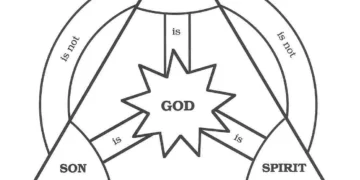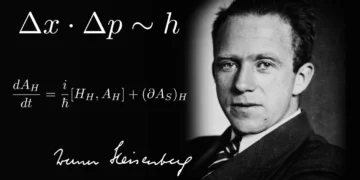The concept of Original Sin has bewildered and divided the human race for centuries. It is a fundamental doctrine in many religions, particularly Christianity, and the source of much theological debate and controversy. Yet, despite its significance, there remains a lack of clarity and understanding surrounding this notion. In this article, I aim to delve deeper into the concept of Original Sin and present a critical examination of its implications.
To put it simply, Original Sin refers to the belief that humans are born with a sinful nature due to the disobedience of Adam and Eve in the Garden of Eden. The biblical account tells us that God warned Adam and Eve not to eat from the tree of knowledge of good and evil, but they succumbed to the temptation of the serpent and ate from it anyway. This act of disobedience marked the fall of humanity and resulted in all humans being born with a sinful nature, hence the term “Original Sin.”
Justification for Redemption and Salvation
From a critical perspective, the notion of Original Sin is problematic and raises several questions. Firstly, why should all humans be held accountable for the actions of two individuals who lived thousands of years ago? This concept seems to contradict the idea of individual accountability and free will. After all, how can someone be held responsible for something they had no control over? Furthermore, if humans are inherently sinful, then it calls into question the concept of a loving and just God. How could a benevolent deity condemn innocent beings to a lifetime of sin and its consequences?
Moreover, Original Sin is often used as a justification for the need for redemption and salvation. This raises another concern – is it fair to punish someone for a crime they did not commit? The notion of Original Sin paints a grim picture of humanity, as we are all deemed guilty from the moment we are born. It disregards the concept of innate goodness and suggests that we are all fundamentally flawed and in need of salvation. This begs the question, do we truly have the ability to be good and make moral choices, or are we doomed to sin no matter what?
Original Sin Used to Oppress and Control
Furthermore, the doctrine of Original Sin has been used to oppress, control, and manipulate people throughout history. It has been used to justify discrimination, wars, and atrocities in the name of eradicating sin. This exploitation of a religious belief has caused immeasurable harm and suffering to countless individuals and communities.
As for those who believe in Original Sin, it is important to acknowledge that sin and evil do exist in the world, and we must take responsibility for our actions. However, instead of using this doctrine as a means to condemn and judge, we should use it as a reminder to strive towards goodness and righteousness. We should also recognize that the concept of Original Sin is a human interpretation and not a universal truth.
Original Sin a Complex and Controversial Belief
In conclusion, the notion of Original Sin is a complex and controversial belief that has far-reaching implications. Its existence questions the notions of free will, individual responsibility, and the nature of God. It has been used and misused throughout history to justify oppression and violence. Instead of clinging to this divisive doctrine, we should focus on promoting love, compassion, and understanding towards one another. As for the lost souls of sinners, let us offer this prayer from the book of 1 Timothy 2:3-4:
“God our Savior, who desires all people to be saved and to come to the knowledge of the truth, we pray for the lost souls of sinners. May your mercy and grace shine upon them, and may they find their way back to you. Amen.”
















































































